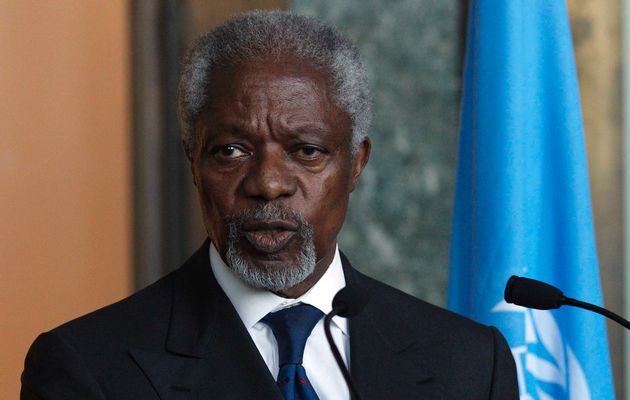Throughout the course of the War on Terror, one of the most fiercely debated counterterrorism tactics has been the effectiveness of drone strikes. Many within the Obama Administration, the US military and security scholars have argued that drone strikes are the most effective way combating Al Qaeda and preventing an attack on the US homeland without putting boots on the grounds. It is for this reason that drone strikes have become the US weapon of choice in the counterterrorism arsenal.
Since the return of Al Qaeda in the Arabian Peninsula (AQAP) in 2009, Yemen has become one of the primary targets of the US drone strikes. The Obama Administration has ordered more than 75 drone strikes on Yemeni targets, resulting in the death of an estimated 600 individuals. Last month has been no exception, as the US responded to the increased threat of an Al Qaeda attack with more than five targeted strikes on suspected AQAP militants in Yemen.
Despite the use of drones on Yemeni targets and the killing of high profile militants such as Yemeni-American Anwar al-Awlaki, AQAP continues to gain sympathy and new recruits from the Yemeni public. In fact, it is precisely this reliance drone-centred counterterrorism that is aiding AQAP and allows it to continue to function. The US drone strategy in Yemen fails to address or rectify the unique and complex circumstances that have allowed AQAP to thrive, and it is for this reason that drones will not be a successful counterterrorism tactic in Yemen.
A major shortcoming of the US counterterrorism approached centered on the use of drones is that it directly targets AQAP in the tribal lands. Although pro-drone critics argue that civilian casualties are minimal in these targets, the use of drones has led to the death of many innocent civilians and destruction of tribal lands. Whether it is due to falls intelligence or AQAP use of civilians as human shelter, the death of tribesman only supports AQAP’s narrative that the tribes are under attack from a near and far enemy: the US and its puppet the Yemeni government. With a Yemeni population that is often hostile to the US, this allows AQAP’s propaganda to resonate with the tribesmen, and gain safe haven and a pool of support. Moreover, the death of innocent civilians acts as a tool for the recruitment of local tribesmen. These men join AQAP not because of shared ideology, but rather out of a desire to get revenge for the attacks on their homeland.
Secondly, the drone-centered counterterrorism strategy fails to address the widespread social, economic and political grievances in Yemen, which AQAP has capitalized on. According to Fund for Peace, in 2011 it was estimated that 42% of the Yemeni population lived on less than $2 per day. Furthermore, the dwindling oil and water reserves have left the central government unable to provide basic services outside urban areas. Though much of the Yemeni population is against Al Qaeda’s interpretation of Islam, AQAP is able to appeal to the sense of victimization felt at the hands of the Yemeni regime and combine it with its global jihadi goals.
In some areas of southern Yemen, AQAP and its political front, Ansar al Sharia, have been successful in picking up the slack. Ansar al Sharia has been proactive in attempting to provide services in areas where the government has virtually disappeared. Furthermore, Al Qaeda and Ansar al Sharia brought security to the people in areas that were famous for thefts, and roadblocks accentuating to independent Yemeni journalist, Abdul Rezzaq al Jamal. As one Southern sheikh, Sheik Ali Abdullah Abdulsalam, says “If my government built schools, hospitals and roads and met basic needs, I would be loyal to my government and protect it. So far, we don’t have basic services such as electricity, water pumps. Why should we fight Al Qaeda?”
The main fault is that the reliance on drones and a strict counterterrorism strategy fails to address the grievances in Yemen. These grievances gain AQAP its support in the tribal areas, and allow it to gain recruits despite the increasing drone strikes. Although Yemen is one of the largest recipients of the Western aid, the majority of it is to of the military and security assistance, making counterterrorism assistance one of the biggest sources of profit for the Yemeni government. The continuation in declining revenue, lack of basic services, corruption, and weak intelligence and military capacity, means that security assistance fails to address critical concerns plaguing the central government, which inhibits its ability to combat AQAP.
It is also important to know that not all tribes are aligned with AQAP. In fact, many tribes only choose to ally with AQAP when it can forward their interest. The fact of the matter is that the tribes are much stronger than AQAP. For years, many of the tribes had a nonaligned view towards Al Qaeda, viewed it as a nuisance, or fought against it. However, US drone strikes have enraged tribal leaders who could potentially keep AQAP in check.
Right now the US is playing a risky game hoping that it can kill enough terrorists to prevent an attack on American soil or American interests. The US counterterrorism strategy and the reliance on drones lack any real long-term solution to decisively beat AQAP in Yemen. In fact, every drone attack that kills a civilian or causes destruction of tribal land only benefits AQAP by giving it more local support. What is evident is that the tribes play a central role in Yemen, and that true success in Yemen will not come from an unmanned vehicle. More has to be done in the way to rectify their political and social grievances that pull the people away from the government. In 2012, White House counter-terrorism advisor John Brennan stated that there was no “short-term fix” for dealing with AQAP in Yemen. But what is clear is that reliance on restricted drone strategy won’t get the US any closer to success in Yemen.




